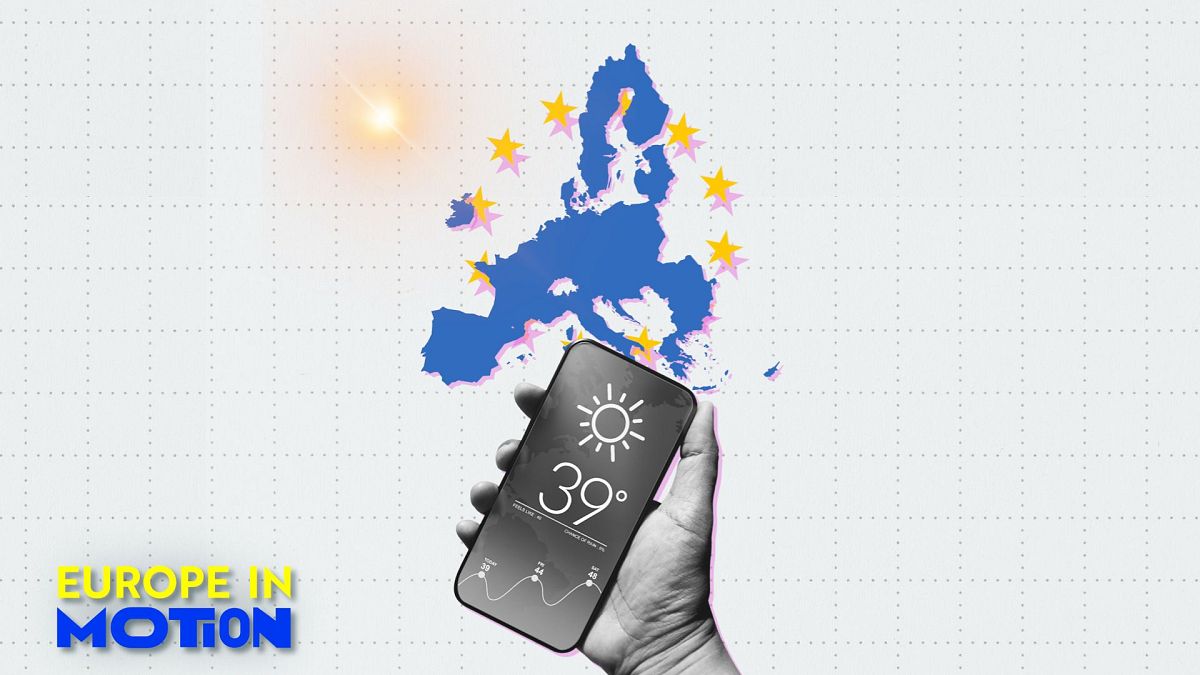Italy Dominates EU Air Conditioning Usage: Mediterranean Heat Crisis
Italy's Air Conditioning Dominance Sparks Climate Discussion
Recent data has revealed something that might seem obvious but tells a much bigger story about Europe's changing climate landscape. Italy has emerged as the EU's largest consumer of air conditioning, significantly outpacing other member states in cooling energy consumption. Following behind are Greece, France, and Spain – a lineup that pretty much reads like a Mediterranean vacation itinerary.
The findings, originally shared by u/Independent_Pitch598 on r/europe, have sparked quite the discussion about climate patterns, energy consumption, and what this means for Europe's future. And honestly? The community reactions are as heated as the temperatures driving this AC usage.
Why Southern Europe is Cranking Up the AC
Look, this isn't exactly shocking news. As one Reddit user, u/Maptwopointoh, sarcastically pointed out: "shocking news : southern Europe has warmer climate than the north...." But here's the thing – while the geographic logic is sound, the implications run much deeper than simple climate geography.
Italy's position as the top consumer isn't just about heat. The country's large population, urban density, and increasingly intense summer temperatures create a perfect storm for air conditioning demand. When you're dealing with 39°C (102°F) temperatures becoming more common, AC isn't a luxury – it's a necessity.
The Numbers Behind the Heat
The data shows Italy consuming significantly more cooling energy than its Mediterranean neighbors. But as u/SegheCoiPiedi1777 noted, "It's literally absolute numbers. Of course the largest southern European country consumes more AC." Fair point – Italy's 60 million residents naturally require more cooling than smaller nations.
What's more interesting is France's position at number three, ahead of Spain. This raised eyebrows among Reddit users, with u/Gauron91 questioning, "France before Spain, really?" This ranking suggests that air conditioning adoption in France might be accelerating faster than expected, possibly due to increasingly frequent heat waves affecting northern regions.
Climate Change and Cooling Costs
The real story here isn't just about current consumption – it's about what this trend means for Europe's energy future. As climate change continues to push temperatures higher, countries that historically didn't need much cooling are finding themselves installing more AC units.
This shift has massive implications for:
Energy grid stability – Peak summer demand is creating new challenges Carbon emissions – More cooling means more energy consumption Economic costs – Both for individuals and national energy policies Urban planning – Cities need to adapt to higher cooling demands
The Tourism Factor
One amusing observation from u/EfrainMei highlighted an often-overlooked aspect: "If Greece didn't hide AC remotes from the tourists, they could get first place 😂" While said in jest, this touches on how tourism affects energy consumption patterns in Mediterranean countries.
Tourism hotspots face unique challenges during summer months. Hotels, restaurants, and attractions all run AC systems at maximum capacity to keep visitors comfortable. This seasonal surge in cooling demand significantly impacts national energy consumption statistics.
What This Means for Europe's Energy Future
The data might seem straightforward, but it's actually revealing critical trends about Europe's energy landscape. As u/LeroyoJenkins sarcastically noted, "Wow, you telling me that the hottest countries use the most AC?" But the real question isn't why hot countries use more AC – it's how rapidly this consumption is growing and what it means for sustainability goals.
Key Implications:
Grid Infrastructure: Southern European countries need to invest heavily in electrical infrastructure to handle peak cooling demands.
Renewable Energy: Higher AC usage creates both challenges and opportunities for solar power adoption, especially since peak cooling demand often coincides with peak solar generation.
Building Standards: New construction standards may need to prioritize natural cooling methods and energy-efficient design.
The Bigger Picture
While Reddit users might joke about the obvious nature of this data, the underlying trends are worth taking seriously. Italy's dominance in AC consumption reflects broader changes happening across Europe. Climate change isn't just an environmental issue – it's reshaping how entire countries consume energy.
The fact that France ranks third, ahead of Spain, suggests that cooling needs are expanding beyond traditional Mediterranean climates. This northward shift in cooling demand could be one of the most significant energy trends of the next decade.
Frequently Asked Questions
Why does Italy use more AC than other EU countries?
Italy combines a large population, dense urban areas, and increasingly hot summers, creating high cooling demand across the country.
Is air conditioning usage increasing across Europe?
Yes, rising temperatures and more frequent heat waves are driving increased AC adoption, even in traditionally cooler regions.
How does tourism affect AC consumption?
Tourism significantly impacts cooling energy use, as hotels, restaurants, and attractions maintain comfortable temperatures for visitors during peak summer months.
Source
Source: Originally discussed by u/Independent_Pitch598 on r/europe
Read the original post: Reddit Thread
Looking Ahead
As Europe continues to grapple with rising temperatures and changing climate patterns, air conditioning consumption will likely become an increasingly important metric for energy planning. Italy's current dominance might just be the beginning of a continent-wide shift toward higher cooling energy demands.
The question isn't whether other countries will follow Italy's lead – it's how quickly they'll need to adapt their energy infrastructure to handle the heat. And honestly? Given the way climate trends are heading, we might be looking at a very different European energy landscape in just a few years.




